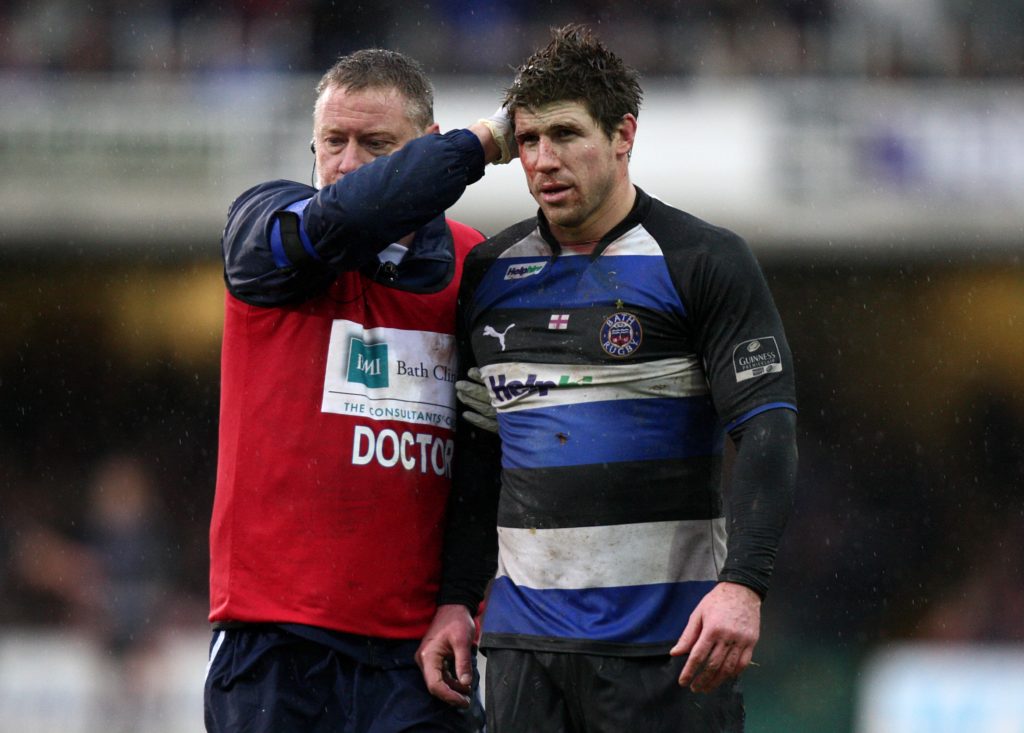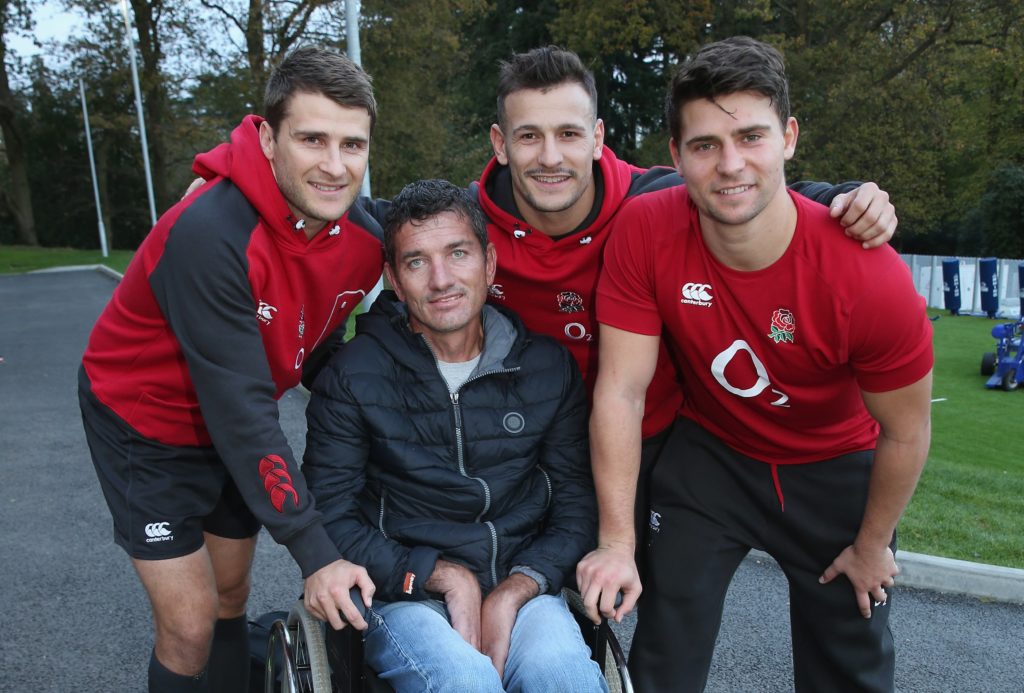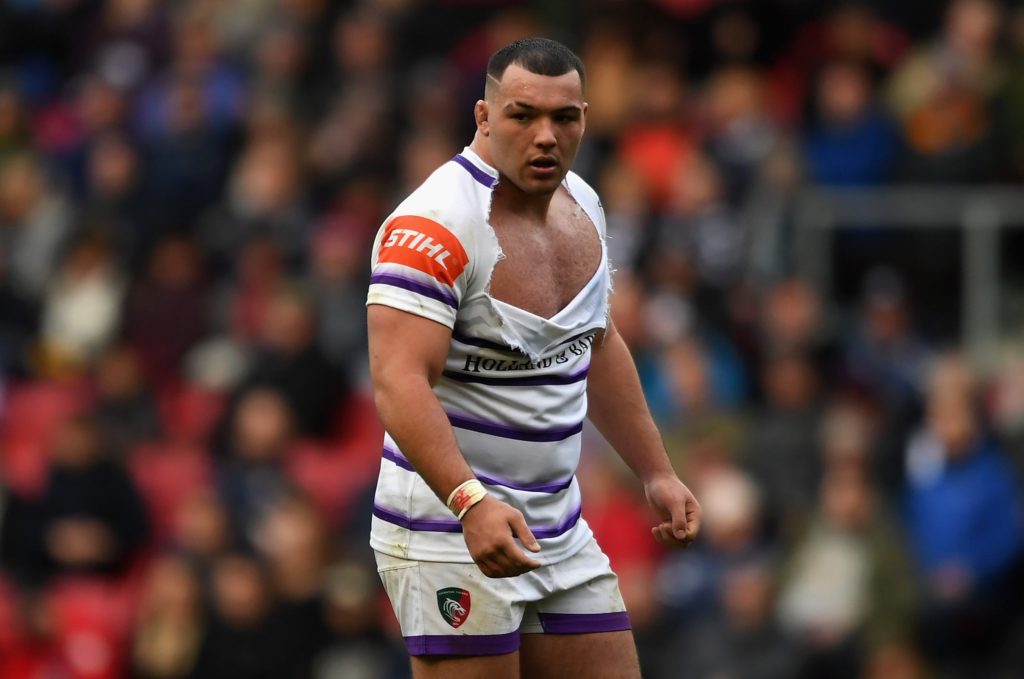There is a booklet issued to all young cadets who pass through the British Army’s officer training academy at Sandhurst entitled ‘Serve to Lead’.
In what is effectively the Army’s leadership bible is an address given by Field Marshal Slim in the 1950s which cuts to the chase of what is to lead. Physical bravery is assumed, but what Slim insists is far more important is something he terms “moral courage”.
True leadership, Slim argues, comes from relentlessly doing the right thing without fear of the consequences.
Risking both physical and reputational damage daily, Leo has forced the rugby world to sit up and take notice. Leo, by anyone’s measure, is a leader.
In recent years former Samoa captain Dan Leo has epitomised moral courage. Once dismissed by World Rugby as a maverick trouble-maker, Leo has fearlessly, relentlessly, doggedly pursued the cause of Pacific Island players and challenged the institutionalised injustices at the heart of professional rugby’s financial model. In doing so, he has effected change.
After years of campaigning, the recently aired Oceans Apart documentary is just another step for Leo in his tenaciously, self-funded pursuit of fairness. Risking both physical and reputational damage daily, Leo has forced the rugby world to sit up and take notice. Leo, by anyone’s measure, is a leader.
But in professional rugby circles, especially in England, Leo is exceptional.
For a sport which promotes itself for its character-building qualities, English rugby is desperately short of leaders. Players pop up with views and then disappear. Books raging against the machine come and go with the tide. And then it’s too late.

In October, former England and Bath flanker Michael Lipman gave an interview to the Sydney Morning Herald in which it was reported, at the age of 40, he is suffering symptoms of dementia he believes are directly related to the “30 plus” concussions he suffered during his playing career.
“If I wasn’t completely knocked out, I played on,” Lipman stated in the interview. Amongst his generation, he was far from alone.
Last week, the Mail on Sunday published an investigation which found, in a cohort of retired English professional footballers from the 1965-66 season, dementia had been a factor in 42% of deaths which had occurred so far.
For many, Lipman’s story is only the tip of a very large iceberg moving inexorably in rugby union’s direction. The threat of litigation hangs heavily.
This backed up research led by Dr Willie Stewart and his team at Glasgow University last year which found former professional footballers were at a three and a half to four times higher risk of developing dementia than the wider general population.
That’s in football. A game we in rugby routinely feel the need to knock for being “soft” or in someway requiring less physical bravery. Unquestionably, football is a less physically demanding of its players with far fewer incidences of concussion. But yet a dementia scandal – or more specifically the epidemic of neurodegenerative disease blighting those who used to be paid to play it – is playing out in plain sight.
For many, Lipman’s story is only the tip of a very large iceberg moving inexorably in rugby union’s direction. The threat of litigation hangs heavily.

Professional rugby’s journey into this world has only just begun. If people truly believe Doddie Weir and Joost van der Westhuizen’s – or Rob Burrow’s in league for that matter – respective battles with motor neurone disease are unrelated to the sport they played they are, I’m afraid, part of the problem. Tragically, there will be many more to come. The evidence now linking concussions to heightened risk of dementia, despite years of systemic denial, is becoming overwhelming.
Yet still no-one is truly standing up for the players. The RPA has been shown to be demonstrably unfit for purpose while recently published books by high-profile ex England players claiming the sport was “killing itself” through over playing and over training are not followed up by deeds. The cheques are accepted but not the responsibility to drive change.
Change can only come from within and players, those who will pay the price for plodding on as we are, will pay the price.
Ellis Genge has tried but been shot down in flames. The clubs circled the wagons and told him they’d only recognise the RPA as the players’ official body. Of course they would. They know the RPA is holed beneath the water line by its funding model and lack of leadership, just as the PFA is in football under Gordon Taylor. It absolutely suits the clubs to keep the status quo. Besides, why should it be left to a young man in his early 20s to take the lead. Others are in far stronger positions to challenge authority.

But while the headlines around dementia are currently being taken by football it is rugby, with its massively increased risk of head injuries, where the most serious problem lies. Improvements have been made to concussion management for sure. But for many, many players the damage has already been done. Change can only come from within and players, those who will pay the price for plodding on as we are, will pay the price.
Leadership is required on this issue from current and ex-players. Moral courage no less. Where is English rugby’s Dan Leo?
More stories from Sam Peters
If you’ve enjoyed this article, please share it with friends or on social media. We rely solely on new subscribers to fund high-quality journalism and appreciate you sharing this so we can continue to grow, produce more quality content and support our writers.


Comments
Join free and tell us what you really think!
Sign up for free